On the morning of September 16, the Cultural Heritage Digital Preservation Training Program successfully commenced during the Cultural Heritage Digitalization Forum of the 2025 World Internet Conference. This marks the first training initiative launched by the World Internet Conference Digital Academy focusing on cultural exchange and mutual learning. The event attracted over 40 officials and experts from government departments, embassies and consulates in China, as well as cultural and museum institutions across over 20 countries, including Sri Lanka, Honduras, Uruguay, Germany, South Africa, Zambia, Tajikistan, Mongolia, Laos, and Myanmar. Participants engaged in discussions on cutting-edge concepts and new historical opportunities for cultural heritage preservation in the digital intelligence era, actively sharing practical experiences in digitalization to promote global exchange and mutual learning in the field of cultural heritage preservation.
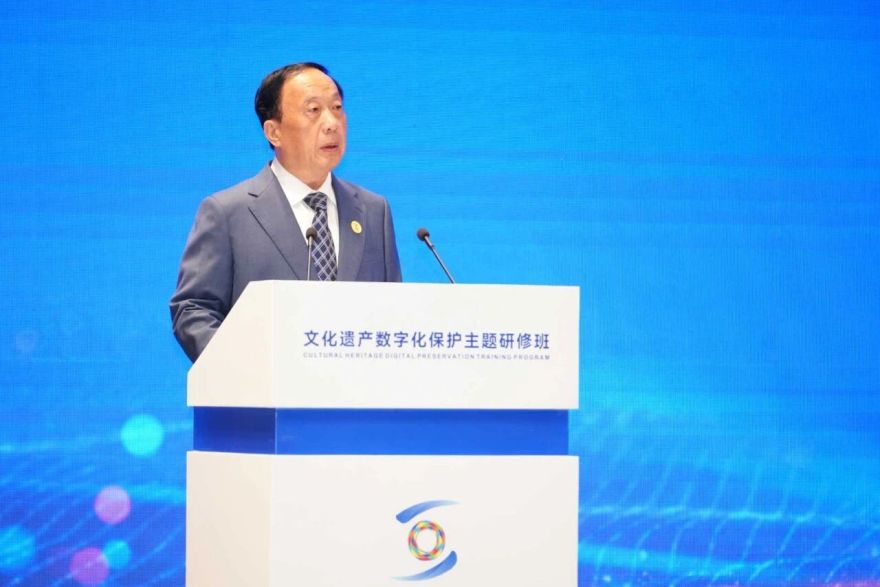
Ren Xianliang, secretary-general of the World Internet Conference and dean of WIC Digital Academy, attended the opening ceremony and delivered a speech. He stated that cultural heritage is the shared memory of humanity, carrying the wisdom of history and the spirit of nations. Confronted with such vast and immensely rich cultural heritage, how can we better protect, pass on, make use of, and share it across civilizations? In the past, we often had the will but lacked the "technology." Today, however, with the widespread adoption of the internet, the iteration of digital technologies, and breakthroughs in artificial intelligence, the global preservation of cultural heritage is encountering unprecedented, technology-driven opportunities.
The transmission of cultural heritage is a common cause that transcends national borders and connects us all. Ren Xianliang put forward three expectations for the international participants of this training program. Firstly, to make protection and utilization complement each other, safeguarding the root and soul of cultural heritage. Secondly, to enable innovation and tradition to achieve mutual success, endowing cultural heritage preservation with new life. Thirdly, to align present efforts with long-term goals, nurturing the resilience and perseverance of cultural heritage preservation. He looks forward to the participants' active involvement in the 2025 World Internet Conference Cultural Heritage Digitalization Forum, where they can serve as envoys of cooperation across institutions and borders, integrate local practices into the global wave of cultural heritage preservation, and collectively safeguard the flame of human civilization through digital technology.
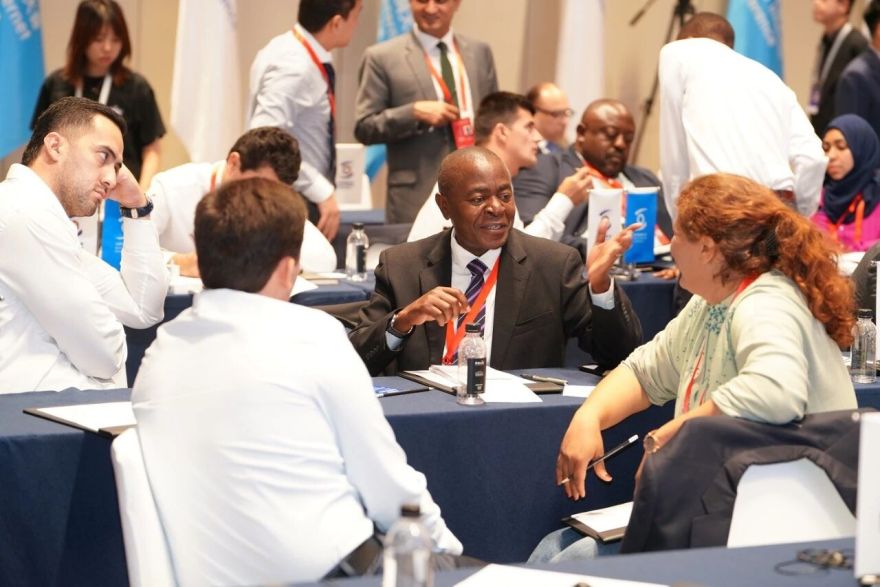
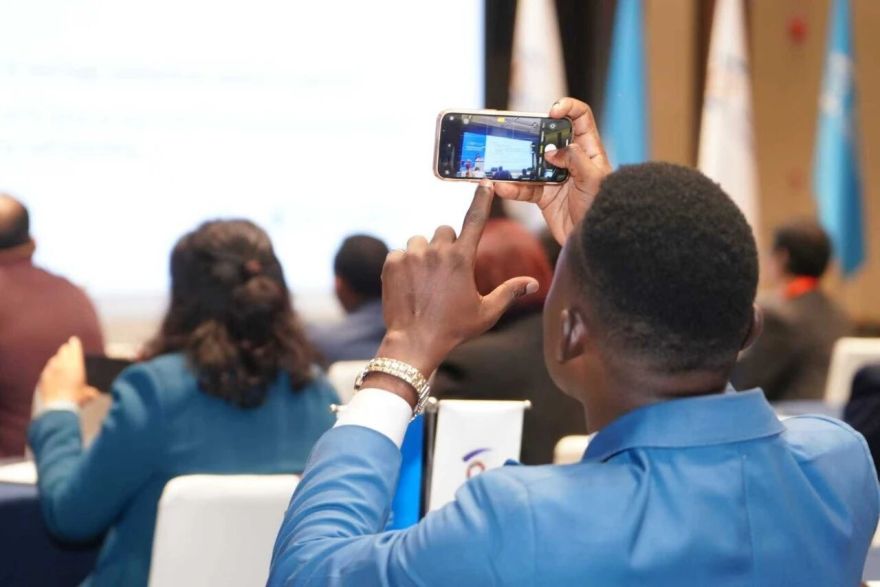
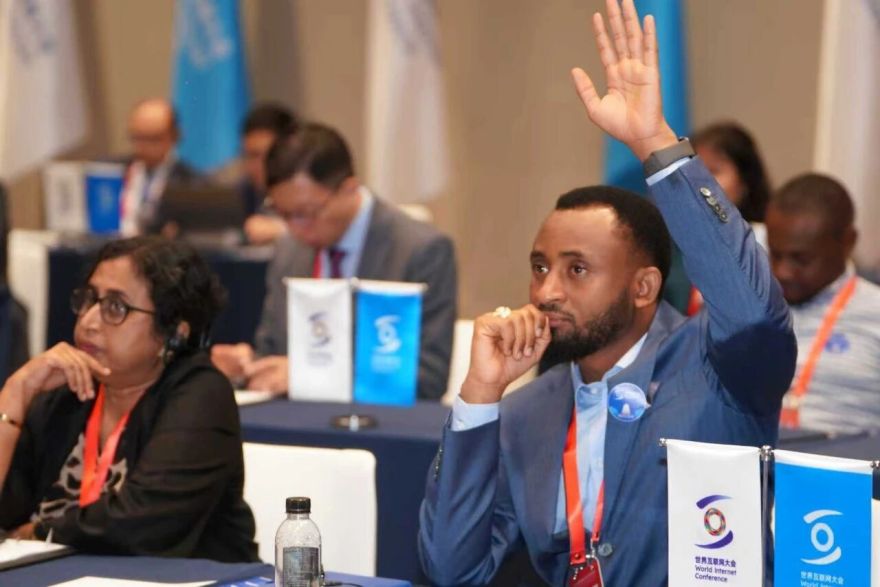
In the subsequent session, experts including An Laishun, chairperson of Asia-Pacific Regional Alliance of the International Council of Museums (ICOM-ASPAC) and professor in heritage studies and museology at School of Heritage and Information Management of Shanghai University; Zhang Rong, PhD of Tsinghua University's National Heritage Center and a researcher librarian at the Qingyuan (Beijing) Cultural Heritage Conservation and Development Center; Wang Weiying, a professor-level senior engineer at the China Academy of Urban Planning and Design; and Cora Würmell, a curator of the East Asian ceramic holdings at the Porzellansammlung, Staatliche Kunstsammlungen Dresden (SKD); closely focused on the latest global trends in digital preservation of cultural heritage. They shared cutting-edge insights and practical experiences in key areas such as the application of digital technology in cultural heritage institutions, conservation of World Heritage sites, traditional villages, and exhibition design in European museums. Following the session, all participants will also visit the exhibition of outstanding digital projects in cultural heritage held during the forum.
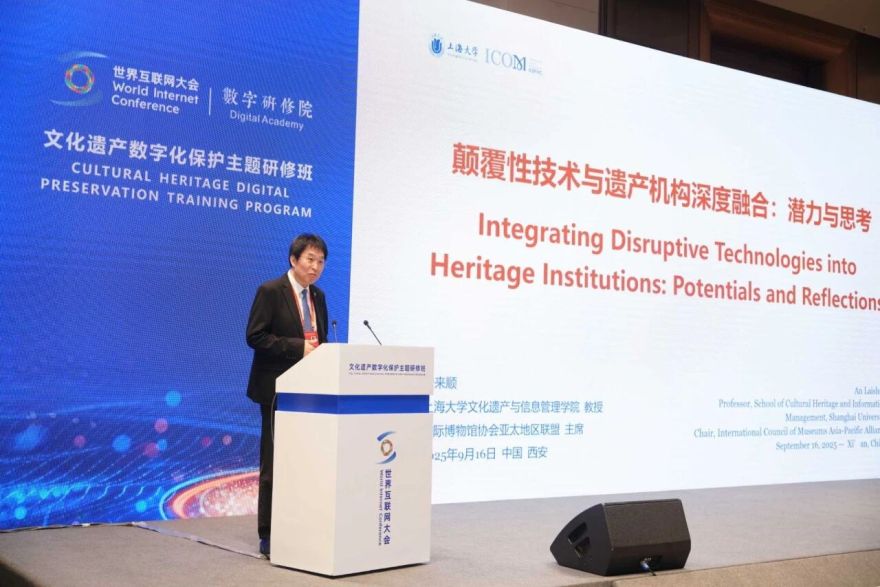
An Laishun, chairperson of Asia-Pacific Regional Alliance of the International Council of Museums (ICOM-ASPAC) and professor in heritage studies and museology at School of Heritage and Information Management of Shanghai University
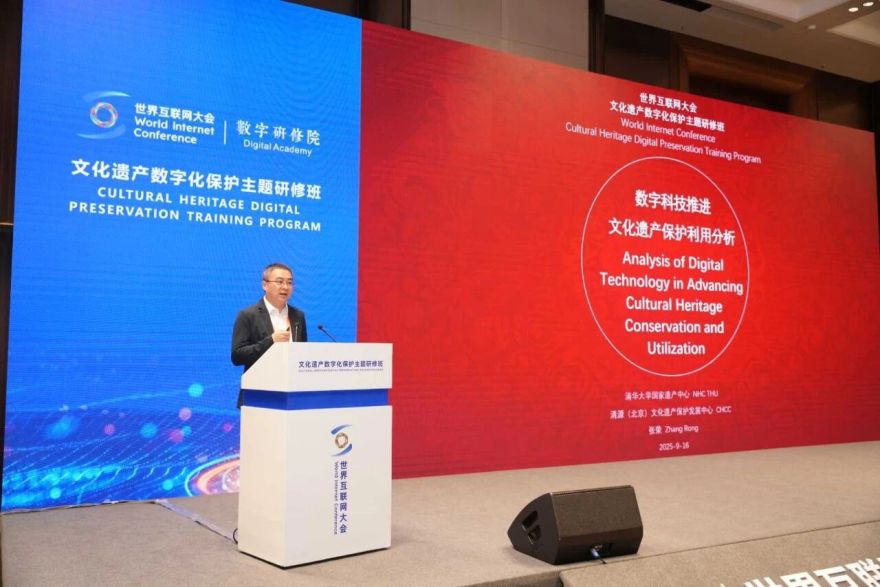
Zhang Rong, PhD of Tsinghua University's National Heritage Center and a researcher librarian at the Qingyuan (Beijing) Cultural Heritage Conservation and Development Center
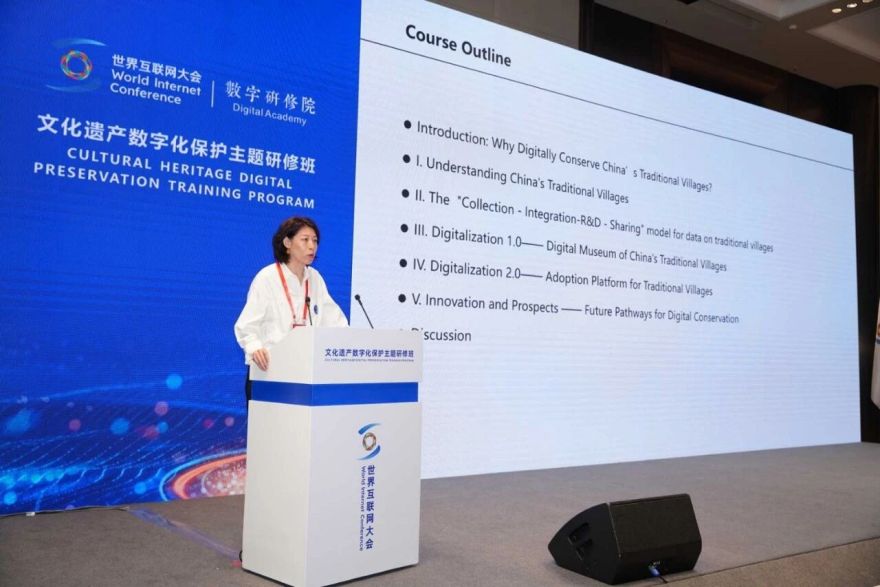
Wang Weiying, a professor-level senior engineer at the China Academy of Urban Planning and Design
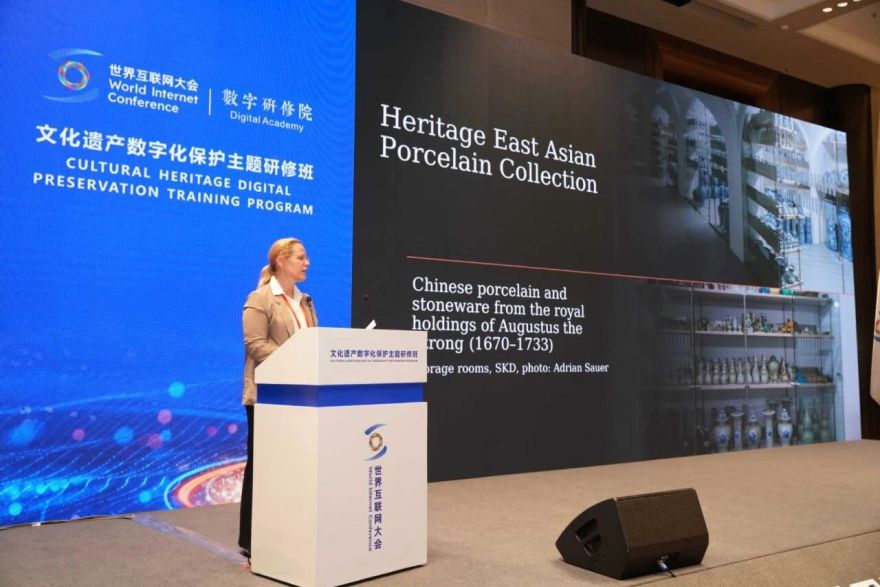
Cora Würmell, a curator of the East Asian ceramic holdings at the Porzellansammlung, Staatliche Kunstsammlungen Dresden (SKD)
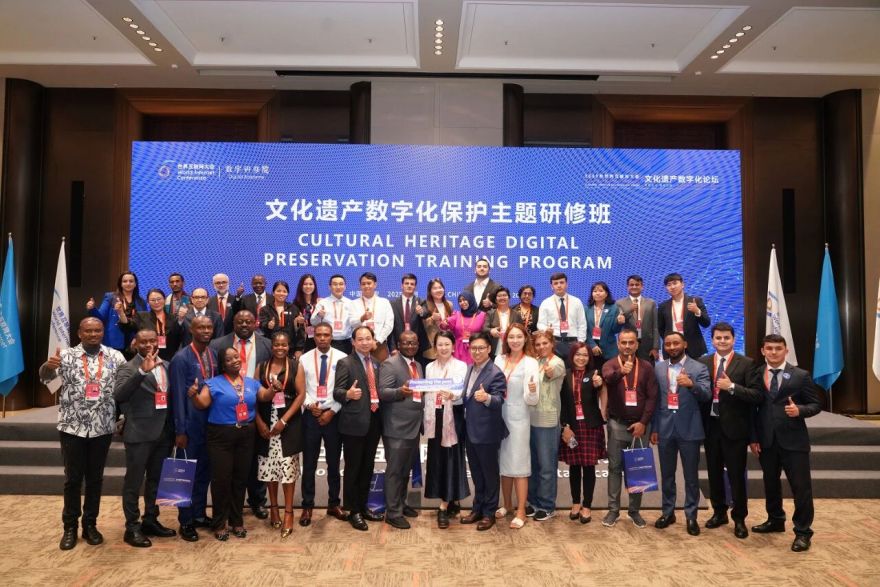
The WICDA was officially launched in November 2024 to focus on key areas of the digital development. Their goal is to conduct training programs globally, especially for developing countries, to cultivate digital talents, empowering governments and enterprises in their digital transformation, bridging the global digital divide, and fostering the shared benefits of inclusive development.
Copyright ©1997- by CRI Online All rights reserved